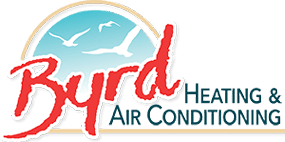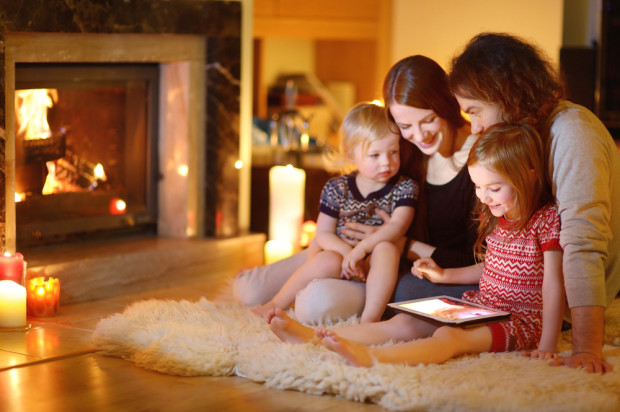Do you live in Savannah or other winter-vulnerable parts of Georgia and want to be ready for the cold weather? This simple guide will help you get your home, heating, ventilation, water, and more prepared. You’ll also be set for efficient operation, spending less money to stay comfortable. To prepare your home for the winter, start with this guide as the cold weather approaches.
Get Your Coils and Ducts Inspected
You’ve likely heard about getting your HVAC coils and ducts professionally cleaned. It’s a good idea to hire a professional to inspect these areas because dust, mold, and other contaminants inevitably build up over the parts of the system that constantly cycle air. On top of reducing indoor air quality, it can eventually build up so much that it cuts the airflow, making it harder for your heating system to do its job.
It’s also important to have a professional check if you have AC evaporator leaks. While this can cause refrigerant to leak, inefficient components can also be indicative of other issues that will hamper your heating, like corrosion, physical damage, and more.
Get Low-Flow Showerheads
Buying and installing low-flow showerheads is a simple but smart change that will help throughout the year, not just in the winter. A slight reduction in shower force will mean that less water is used in the same five minutes. That means you can still have a decent shower while using less energy from heating your water. It’s an eco-friendly choice that will also reduce your winter water bill.
Check and Change Your Furnace Filter
If you use a furnace, you’ll want to change your filter regularly, preferably before the cold weather hits. Give it a look every one to three months as the winter passes along. This is the most active time for your furnace, and you may end up needing to change the filter a second or even third time, depending on the severity of the low temperatures.
Repair Any Heating Issues
If any minor heating unit issues have cropped up, or you suspect that they have, it’s always better to have a professional check the system first rather than finding out the hard way when it gets really cold outside. Have a professional check for parts of your heating system that need repair, such as unusual noises, a bad pilot light, unpleasant odors, clogged filters, thermostat malfunctions, and overheating. A minor repair now will save energy through better operation and save you money compared to waiting and getting an emergency repair done.
Check and Maintain Your Insulation
Naturally, this is one of the biggest factors for winter energy savings. Make sure there are no gaping tears or weak spots in basement insulation. Don’t forget about the attic, either, since hot air will always rise upward and can easily escape if the house is poorly insulated. It’s unlikely, but if your insulation is very old, consider having it replaced.
Get a Humidifier
Many people don’t realize that humid air actually feels warmer than dry air. A plug-in humidifier will do the job for one or two rooms. Consider placing one in your bedroom at night for some more comfort while you sleep without cranking up the heater. If you want to really solve this issue with properly humid air all throughout the year, consider getting a humidifier unit installed. Different units can connect to either your electricity, water, or both, so you can choose a model that works with your most efficient systems and keep it off during the humid summer.
Install an Energy Recovery Ventilator
The reality is that for most parts of Georgia, homes are too humid rather than too dry, even during the winter. If a humidifier is the last thing on your mind, then you won’t regret having an energy recovery ventilator, or ERV, installed. ERVs capture the exhausted air from your home and use it to generate energy and better ventilate your system. ERVs also treat the exhausted air as they dehumidify it, meaning your air gets cleaned a second time. The more your air is cleaned, the less likely your coils and ducts are to get clogged with dust and contaminants.
Check and Unblock Air Returns
The fall months are a good time to check your furniture to see if anything is blocking your heating registers and air returns. The better your airflow, the better your heating unit will perform, and the more efficient it will be. If anything’s in the way, move it as best you can. Think of it as a good opportunity to do some minor redecorating. Once you’ve taken care of the blockage, wipe away any dust that you can see built up on air returns.
Seal Your Windows
Warm air will jump at the chance to escape from your home. Check for air leaks around your windows and caulk them shut carefully. You may want to consider getting energy-efficient windows for permanent savings now and later. Help slow down the airflow to your windows by placing potted plants and other appropriate items in front of them.
Set Your Thermostat Appropriately
Having a thermostat run lower for eight hours of every day can save you tons of money and energy every year. It’s generally a good idea to set your thermostat to 65 degrees Fahrenheit during the winter while you’re home. It’s cool rather than warm, but bundling up or making warm tea is more efficient than setting your thermostat past 70. For nights and days when you’re gone, you can set the temperature as low as 55 degrees Fahrenheit. Aim a little higher with these temperatures if you or someone living in your home has health concerns.
On a related note, you may want to consider getting a programmable thermostat, which makes these specific temperatures much easier to handle depending on your family’s schedule. You can change the settings once and not worry about it until the winter is over. Otherwise, take things a step further and install a smart thermostat that you can control while you’re away from home.
Let the Sunshine
The sun has nearly immeasurable amounts of energy, so why not take advantage of it? Keep your window blinds, curtains, and other treatments open to let the sunshine over the surfaces of your home during the warmest parts of the day. On the flip side, it’s just as helpful to close everything up at night to limit the loss of warmth through the glass.
Reduce Water Heat
Turn down your water heater’s goal temperature to 130-140 degrees Fahrenheit. This is all you need for showers that will wake you up in the morning and for proper dishwasher performance. You should also set your dishwasher to a low-temperature setting and always run the dishwasher with a full load. Some dishwashers allow you to shut off the drying element with an energy-saver mode.
You should also lower the temperature setting on your washing machine if the model allows it because heating the water is the main source of their energy expenditure. These days, most laundry detergents work just as well in cold water as they do in hot water. If your wardrobe will allow it, stick to washing and rinsing clothes in warm water only, and you’ll save a ton on your utility bill.
Follow these tips for preparing and staying comfortable during the winter, and you’ll find yourself with some extra money. More importantly, you’ll have made your own small step toward helping the environment. Your neighbors scratch their heads over how you managed it. If you decide during your pre-winter inspections that you need some work done to improve your indoor air quality or to maintain a part of your HVAC system, our team at Byrd Heating and Air Conditioning is ready to help, with free estimates for replacement units.
Even if the winter has come and you missed something serious, we can provide 24-hour emergency service. Call us at 912-373-8447, and our experienced staff will have your home in winter-ready shape as soon as possible.
Image provided by Shutterstock


